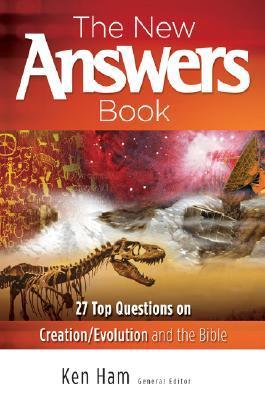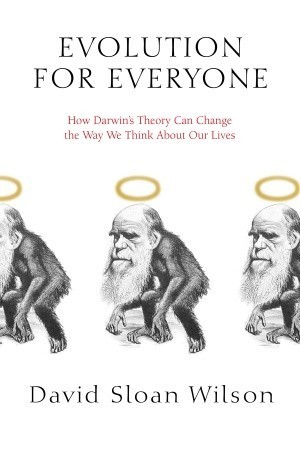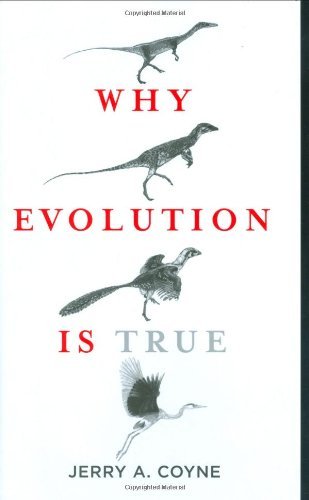
Undeniable: Evolution and the Science of Creation
Book Description
What if the keys to understanding our existence are hidden in the very fabric of time? "Undeniable: Evolution and the Science of Creation" shatters myths and confronts deeply held beliefs with thrilling clarity. Bill Nye takes readers on a riveting journey through the wonders of evolution, unraveling complex science with an engaging narrative that sparks curiosity and challenges assumptions. Experience the exhilarating interplay between nature, science, and belief as Nye champions evidence-based understanding, igniting passion for the natural world. Can humanity rise above ancient divisions and embrace the truth of our shared origins? The answers may change everything.
Quick Book Summary
In "Undeniable: Evolution and the Science of Creation," Bill Nye passionately explains the fundamentals of evolutionary biology, skillfully debunking creationist arguments and misconceptions about science. Drawing from engaging stories, accessible analogies, and scientific breakthroughs, Nye illuminates how life evolved on Earth over billions of years. He urges readers to embrace evidence-based thinking, demonstrating why evolution is the foundation of the living world and critical to advancements in medicine, agriculture, and technology. Nye also addresses the ongoing conflict between science and religious belief, emphasizing the importance of fostering curiosity and scientific literacy for humanity's future. The book empowers readers, regardless of background, to appreciate the natural world and adapt to a rapidly changing society shaped by science.
Summary of Key Ideas
Table of Contents
Understanding Evolution as Fundamental Science
Bill Nye begins by guiding readers through the core concepts of evolution, laying the scientific groundwork for understanding natural selection, genetic variation, and speciation. Using relatable examples and vivid analogies, he highlights both the simplicity and profound intricacy of evolutionary mechanisms. Nye makes a compelling case for why evolution, as observed across the fossil record, genetics, and modern biology, is the cornerstone of life sciences. This foundation enables readers to appreciate not only our shared biological history but also the interconnectedness of all living things.
Debunking Creationist Claims and Misconceptions
Nye systematically addresses and deconstructs common arguments made by proponents of creationism and intelligent design. He tackles misconceptions such as the misuse of the Second Law of Thermodynamics, the argument of irreducible complexity, and gaps in the fossil record. Through patient explanation and clear scientific evidence, Nye reveals how these points are either misunderstandings or misrepresentations of how science operates. His tone is respectful but firm, advocating for science as a tool to understand rather than dismiss the wonders of nature.
The Practical Implications of Evolutionary Theory
The book emphasizes the vital importance of evolutionary science in practical domains. Nye explores how knowledge of evolution underpins advances in medicine, such as antibiotic resistance and vaccination, and agricultural practices like crop breeding. He shows that evolutionary principles are essential for problem-solving in ecology, conservation, and public health. By tying the science to everyday life, Nye argues that evolution is not just an academic pursuit, but a critical element in ensuring a healthy and sustainable future for humanity.
The Relationship Between Science and Belief
Recognizing the cultural and religious sensitivities surrounding evolution, Nye discusses the ongoing tension between faith-based creation narratives and scientific evidence. He calls for respectful dialogue, insisting that embracing evolution does not have to be antithetical to personal belief systems. However, he warns against the dangers of ignoring scientific consensus, particularly concerning education and policymaking. Nye stresses that scientific literacy is the key to individual empowerment and societal progress.
Fostering Scientific Literacy and Critical Thinking
Ultimately, "Undeniable" serves as a rallying cry for critical thinking and science education. Nye urges readers, educators, and policy-makers to foster curiosity and skepticism, equipping future generations with the tools to evaluate evidence and embrace discovery. The book closes on an optimistic note, celebrating humanity's capacity for wonder and adaptability. Nye envisions a society where understanding evolution empowers innovation, tolerance, and global cooperation—ensuring our survival and thriving on a shared planet.
Download This Summary
Get a free PDF of this summary instantly — no email required.





